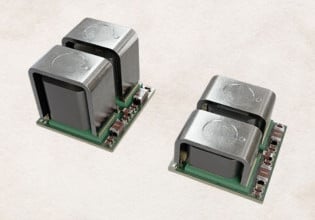Ballard Power Systems Inc. (Vancouver, BC) announced its Mark 902 advanced fuel cell platform. Building on the Mark 900 Series announced in January 2000, the Mark 902 optimizes lower cost, design for volume manufacture, reliability, power density and compatibility with customer system requirements. The Mark 902 Series represents Ballard's 4th generation of transportation fuel cell platforms.
Designed to meet the rugged conditions of transportation applications, the Mark 902 platform also allows configurations for stationary power generation use, and is scalable from 10kW to 300kW, depending upon customer requirements and applications. Typical power output for transportation markets is 85kW for passenger vehicles and 300kW for transit bus applications.
”Ballard has designed the Mark 902 with an overall approach that considers core materials, volume manufacturing processes and stack performance in the context of a total fuel cell engine system," stated John Harris, vice president, marketing of Ballard. “Having met our goals on volume, weight and power requirements in our previous Mark 700 Series announced in 1995, and extending that performance and power density to practical, volume ready designs and materials with the original Mark 900, we were determined to improve system integration and reliability, and further reduce costs with the new Mark 902. The Mark 902 platform strategy also accommodates Ballard's technology roadmap program, allowing us to incorporate even more advanced technologies that we are developing in our laboratories as they mature."
The Mark 902 uses Ballard-designed flowfield plates, which were developed over a 10-year period and offer electrical and thermal conductivity, low cost, and compatibility with continuous process volume manufacture. Additionally, the unit cell design of the Mark 902 allows scalable combinations to achieve a variety of power outputs.






